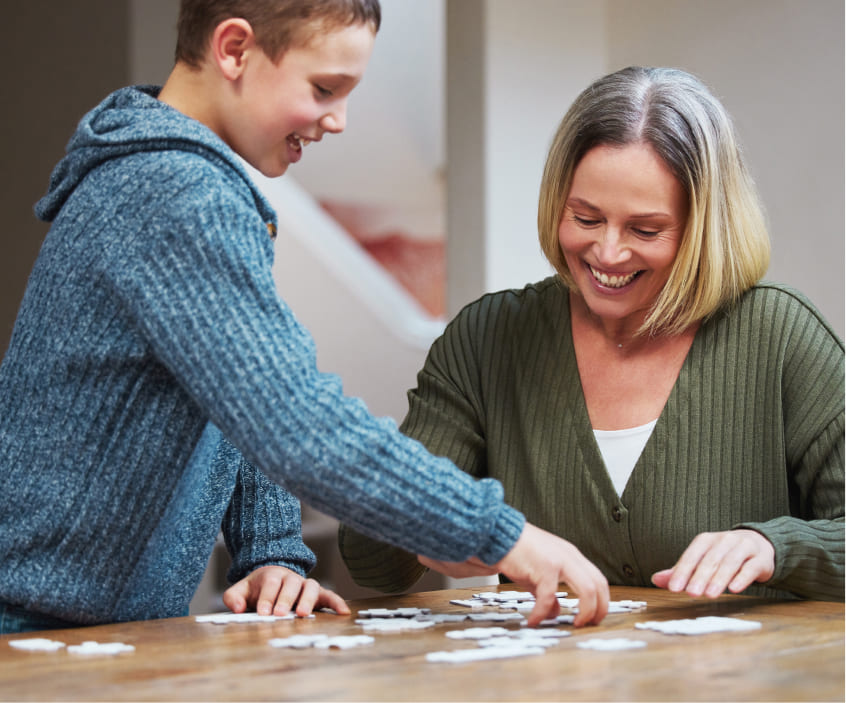In our fast-paced, digital world, it's becoming more and more challenging to find activities that encourage genuine, device-free interaction amongst our family and dear friends. But have you ever thought of the impact a fresh new puzzle box? Yes, we're talking about puzzles — a timeless game that not only provides connections and fun but also a fantastic brain boost and calming effect.
Puzzles: More Than Just Pieces
Puzzles, from jigsaws to crosswords to brain teasers, are much more than just a pastime. They're a window to quality time spent with loved ones, sparking conversations, laughter, and a sense of accomplishment once you fit in that final piece together.
The Magic of Collaboration
Assembling a puzzle is an exercise in collaboration and teamwork. Each person gets to contribute their unique perspective, and every piece placed brings a shared sense of achievement. Puzzles teach us patience, perseverance, and the joy of collective victory. For children, this could mean an early lesson in cooperation and problem-solving, and for adults, a refreshing break from their individualistic routines.
Device-Free Bonding
In our technology-filled lives, puzzles offer a rare, unadulterated, screen-free engagement. The sheer pleasure of sifting through pieces, the thrill of finding the right spot, and the shared suspense of what the next piece brings, all combine into a bonding experience that's hard to replicate on digital platforms. It's an opportunity to connect, converse, and truly 'be present' with each other.
Boosting Brain Health
Puzzles are not just good for the heart; they're excellent for the brain as well. Engaging in puzzles can enhance cognitive function, improve memory, and refine problem-solving skills. The act of piecing a puzzle together requires concentration and improves short-term memory and attention to detail. It exercises both sides of the brain - the logical left side when we sort pieces and follow a sequence, and the creative right side when we imagine the bigger picture.
Therapeutic Benefits
Puzzling has therapeutic benefits too. It can be a form of meditation as it requires focus on one task, helping to drown out external stressors. The satisfaction of fitting a piece perfectly can also trigger the release of dopamine, a neurotransmitter that generates feelings of happiness and accomplishment.
Making Memories
Finally, the memories made while huddled around a puzzle are priceless. It's the stories shared, the friendly banter, the joint strategizing, and the collective cheer when the puzzle is finally complete. These moments, frozen in time, create lasting memories that you and your loved ones can cherish.
Whether it's a rainy day indoors, a family game night, or a quiet evening with a loved one, consider breaking out a puzzle. It's not just about creating a picture; it's about creating connections, strengthening bonds, and giving your brain a little soothing. So next time you're seeking an engaging, device-free activity, remember - there's a whole world of fun and bonding waiting inside that puzzle box!

